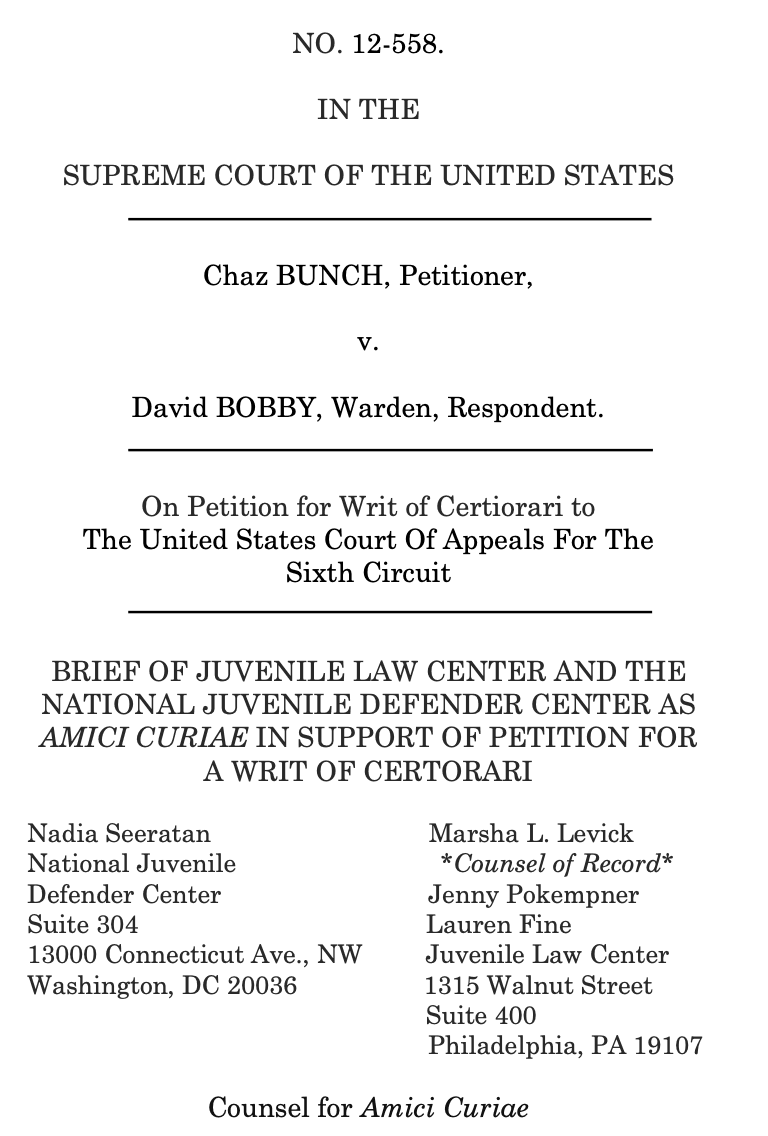
Summary of Argument
This case raises a question of exceptional importance regarding the application of Graham v. Florida and the importance of Miller v, Alabama to the Court’s Eighth Amendment jurisprudence as it relates to children. This Court ruled in Graham that juvenile offenders cannot be sentenced to life without parole without a meaningful and realistic opportunity to re-enter society prior to the expiration of their sentences for non-homicide offenses. 130 S. Ct. 2011, 2010 (2010). The Court explained:
The juvenile should not be deprived of the opportunity to achieve maturity of judgment and self-recognition of human worth and potential. . . . Life in prison without the possibility of parole gives no chance for fulfillment outside prison walls, no chance for reconciliation with society, no hope.Id. at 2032. Graham held that a sentence that provides no “meaningful opportunity to obtain release” before the end of the child’s life is unconstitutional.
Id. at 2033. Here, Petitioner was sentenced to remain in prison until he is approximately 105 years old for non-homicide offenses for which he was charged when he was a child.3 Because this sentence means that Petitioner unquestionably will die in prison, this Court should clarify that this sentence is unconstitutional under Graham regardless of whether it is actually labeled “life without parole.” Under Graham, juveniles who do not kill or intend to kill must be guaranteed a “meaningful opportunity to obtain release” -- even if that opportunity does not actually result in release. 130 S.Ct. at 2030. Chaz Bunch was denied that opportunity when he was sentenced to a term of years that is functionally equivalent to a life sentence. As Chaz Bunch did not kill or intend to kill, he is not deserving of “this harshest possible penalty.”. Miller v. Alabama, 132 S. Ct. 2455, 2469 (2012).